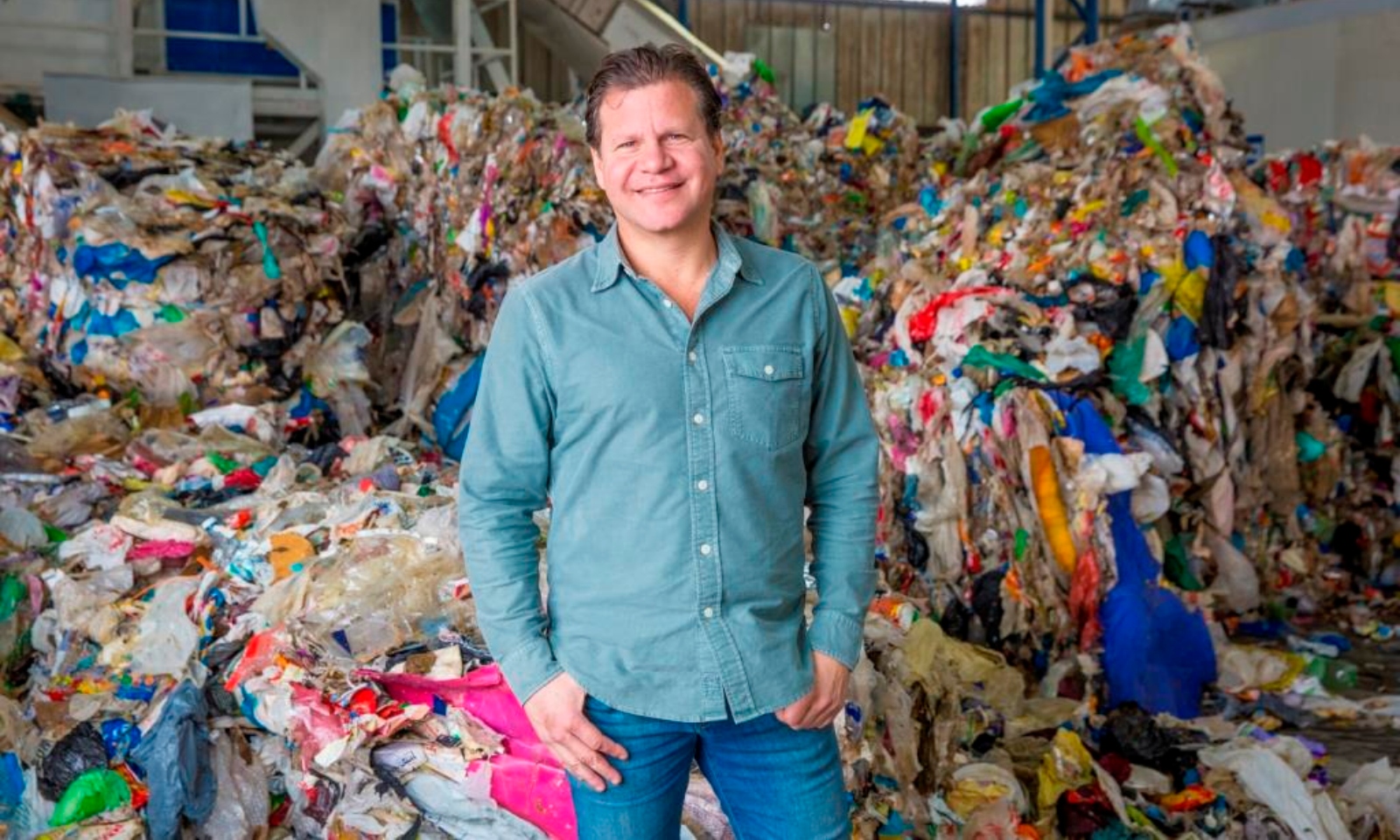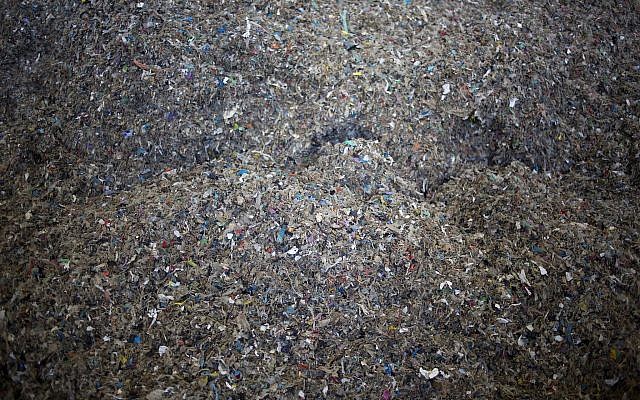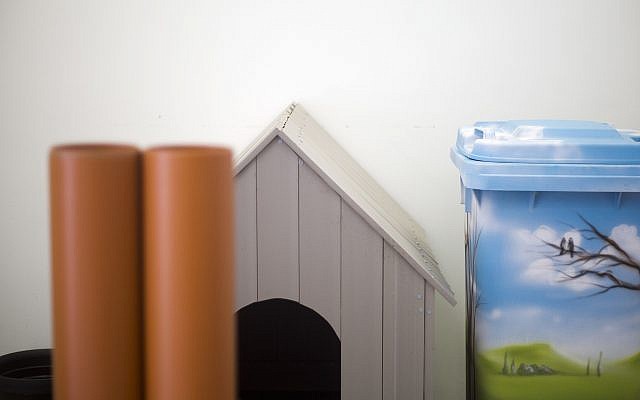The Plastic – Climate Change Connection: Israel & UBQ
Key concepts:
• green thermoplastics?
• turning organic household waste into thermoplastic
• microplastics
• plastic trash impacts
• plastic toxicity
• chemical migration from plastic packaging
UBQ™ calls their product a “green thermoplastic“, produced by converting organic household waste into sustainable bio-based materials. UBQ™ is a novel climate positive material that can be used for the manufacturing of thousands of products, more sustainable and with a reduced carbon footprint and can substitute plastics, minerals and wood in thousands of different applications.
• In 2020 McDonald’s started using UBQ in restaurants.
• In 2020, Daimler-Mercedes started testing UBQ in car parts.
• In 2020 Fast Company called UBQ a world-changing idea.
On January 5, 2021 UBQ announced a pilot project with the state of Virginia.

UBQ has a unique business model whereby cities pay UBQ the same fees they would pay a landfill to take their trash, which allows the company to sell its thermoplastic at the same price as conventional raw plastics yet still make a profit.
According to the United Nations Environment Program, five percent of global greenhouse gas emissions are produced by decomposing organic material in landfills. Roughly half is methane, which is 21 times as potent for global warming as carbon dioxide, according to the World Bank.
The Times of Israel first announced in late March, 2018 that an Israeli company could “turn garbage plastic into gold.” Duane Priddy, former principal scientist at Dow Chemical, said in an email to The Associated Press that skeptics call UBQ’s claims “alchemy.”
UBQ is an Israeli company with a patented a process to convert household trash, diverting waste from landfills into reusable bio-based plastic.

For every ton of material produced, UBQ says, it prevents between three and 30 tons of CO₂ from being created by keeping waste out of landfills.
UBQ says that its closely guarded patented process produces no carbon dioxide or toxic byproducts, and uses little energy and no water. Leading experts and scientists serve on its advisory board, including Nobel Prize chemist Roger Kornberg, Hebrew University biochemist Oded Shoseyov, author and entrepreneur John Elkington and Connie Hedegaard, a former European Commissioner for Climate Action.
Albert Douer, UBQ’s executive chairman, said that UBQ’s material can be used as a substitute for conventional petrochemical plastics and wood, reducing oil consumption and deforestation. The company aims to revolutionize waste management and make landfills obsolete, though their technology still is unproven and its commercial viability hard to assess.
According to the United Nations Environment Program, 5 percent of global greenhouse gas emissions are produced by decomposing organic material in landfills. Roughly half is methane, which over two decades is 86 times as potent for global warming as carbon dioxide, according to the U.N. Intergovernmental Panel on Climate Change. For every ton of material produced, UBQ says it prevents between three and 30 tons of CO2 from being created by keeping waste out of landfills and decomposing.
UBQ proposes use of its material as an additive to conventional plastics, claiming that 10-15 percent is enough to make a plastic carbon-neutral by offsetting the generation of methane and carbon dioxide in landfills. The UBQ material can be molded into bricks, beams, planters, cans, and construction materials and used in ordinary household products, such as those pictured below.

Unlike most plastics, UBQ says its material doesn’t degrade when it’s recycled.
UBQ operates a pilot plant, production line, and research facility on the edge of southern Israel’s Negev Desert. UBQ has raised $30 million from private investors, including Douer, who is also chief executive of Ajover Darnel Group, an international plastics conglomerate.
The small plant can process one ton of municipal waste per hour, a relatively small amount that would not meet the needs of even a midsize city. But UBQ says that its modular process can be quickly expanded. UBQ Chief Executive Tato Bigio says that recyclable items like glass, metals and minerals are extracted and sent for further recycling, while the remaining garbage – “banana peels, the chicken bones and the hamburger, the dirty plastics, the dirty cartons, the dirty papers” – is dried and milled into a powder, thereby avoiding the landfill.
See the app @ earthDECKS.org
Saving Our Oceans from Plastic: articles by Zann Gill
- Adverse Health Effects of Plastic
- Aquaria – Informal Learning Network
- Beat the Microbead
- Bibliography: Plastic Roads
- Boyan Slat: Floater Technology for Ocean Cleanup
- Complex Systems Problems
- Cradle to Grave: Plastic Supply Chain
- Dame Ellen MacArthur: The Circular Economy
- Sylvia Earle: Learning for a Plastic World
- earthDECKS Limelights: Companies to Watch
- Enshrouded in Plastic
- Flamingos Signal the Future We Face
- Floating Trash: More than 4x as bad as we thought
- Give the World a Helping Hand: 3D Prostheses
- Global Ocean Sensing
- Industry Response to the Plastic Challenge
- Nature’s Innovators: plastic consumers
- Ocean Debris Network
- Ocean Ingenuity
- Oceans – Measuring Planet Health
- Plastic Bank – The Exchange Economy
- PLASTIC: Complex Systems Problem
- Plastic: Drinking Water, Table Salt & Mother’s Milk
- Plastic Footprint – Carbon Footprint
- Plastic-Eating Enzyme
- Plastic Gyres and Social Justice
- Plastic Impact Calculator
- Plastic Pollution Coalition: Campaign vs Single Use Plastic
- Plastic & Public Health: Endocrine Disruptors
- PLASTIC: Overview of National Leadership
- Plastic Roads – Global Innovation Ecosystem
- Plastic Strategies for Innovation
- The Plasticene
- Plastiki: adventure stories & a big message
- Raising Awareness of Plastic Hazards
